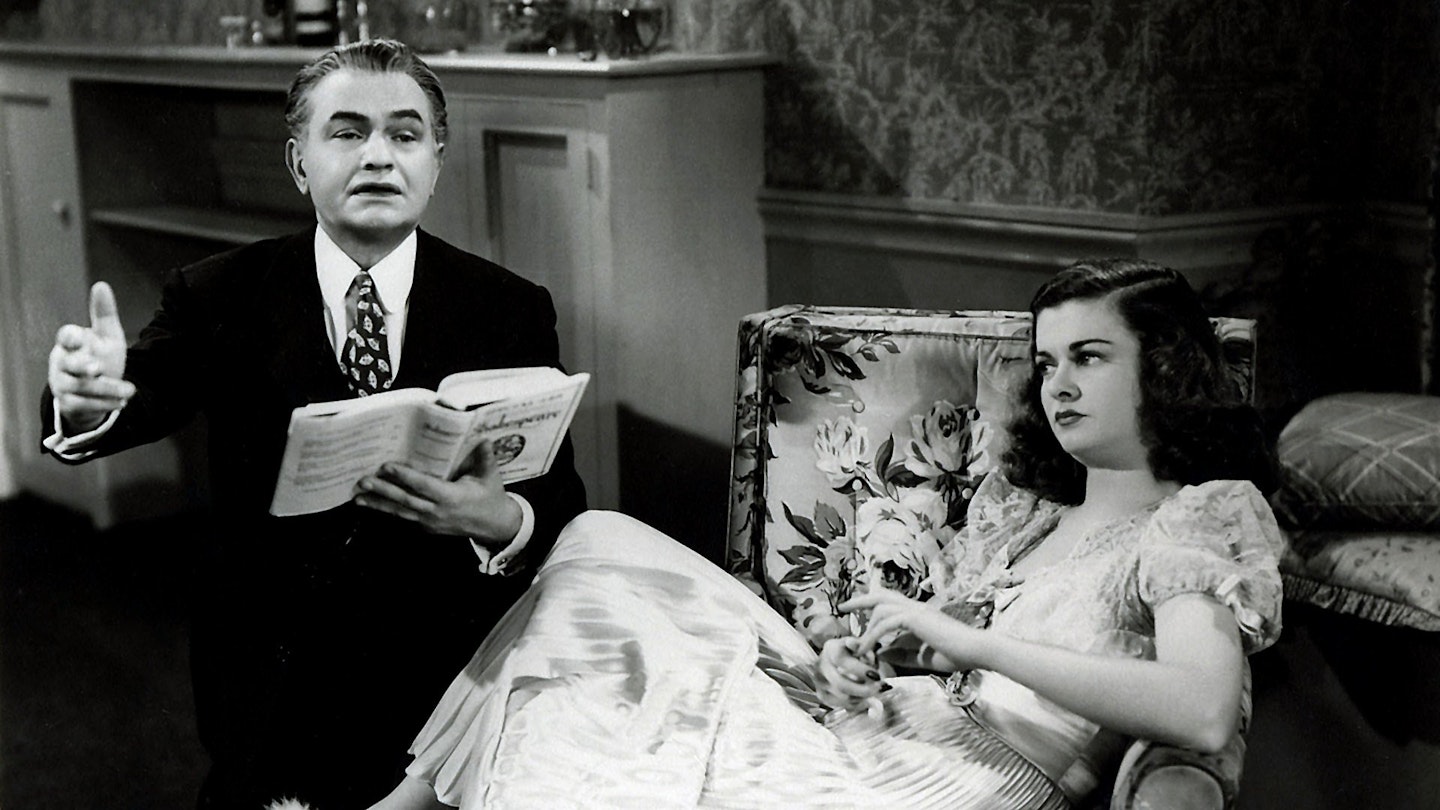Fresh from the success of The Woman In The Window (1944), Fritz Lang renewed his partnership with independent producer Walter Wanger and the exceptional Edward G. Robinson for a second noir classic.
Adapted from a novel by Georges de la Fouchardiere, this tale of desperate love and casual betrayal had already been filmed by Jean Renoir as La Chienne in 1931. But Lang brought to it not only an intuitive expressionism, but also a gnawing personal insight, for while he would never have depicted himself as such a weak character, the auteur trapped in the Studio System would not have missed the irony that Chris Cross is an artist whose vision has been snatched away from him and exhibited under another's name (in Lang's case, Universal).
Downtrodden bank clerk, timid husband and amateur artist Christopher Cross (Robinson) sees a thrilling way out of his humdrum existence when lazy-limbed Kitty March (Bennett) agrees to become his model. However, his idyll is shattered when he discovers she's been in league with petty con Johnny Prince (Duryea) all along.
Rarely has a noir victim fallen under a fatale's spell so willingly or broken free with such merciless violence. Played with consummate skill by Edward G. Robinson, Cross is initially made to seem an amiable sap. But gradually, Lang's contempt for his impotence emerges and there's no pity whatever in his decline and fall after he allows Johnny to take the rap for Kitty's ice-pick demise.
Revelling in their callous exploitation, Bennett and Duryea also turn in splendid performances. But this is very much the director's film, with Lang swathing the later scenes in increasingly sinister shadow to convey Cross' disgraced descent into a living hell. No wonder it remained one of his favourites.
